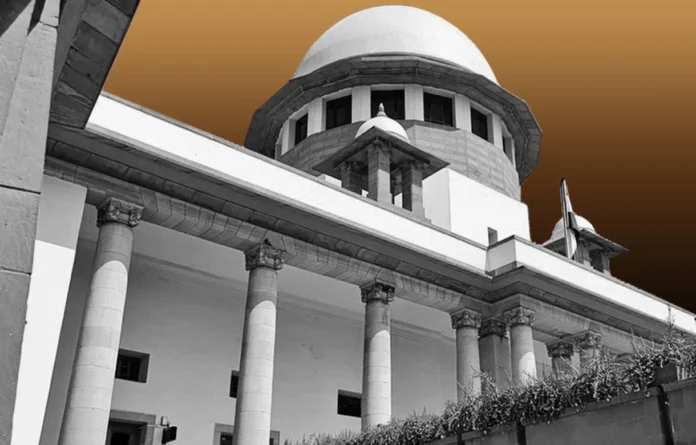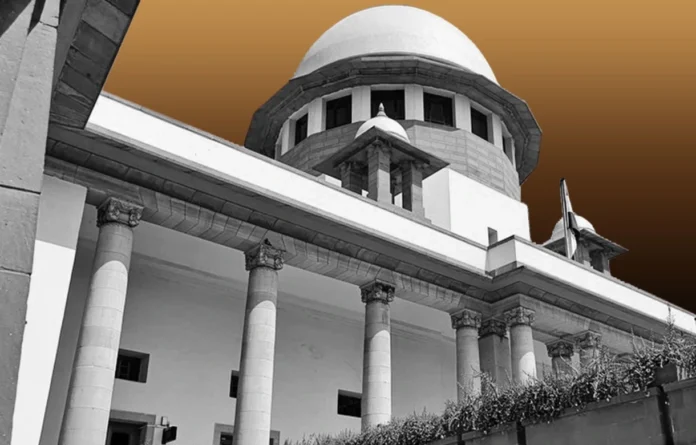The Association of Democratic Reforms (ADR) has apprised the Supreme Court that the Election Commission of India (ECI) failed to provide any valid reason for the exclusion of Aadhaar and ration cards from the list of acceptable documents in the ongoing Special Intensive Revision (SIR) of electoral rolls in Bihar.
The NGO made the submission in a rejoinder filed in reply to the ECI’s response on a batch of petitions challenging the ongoing SIR process in Bihar ahead of the upcoming Assembly elections.
The Commission submitted that Aadhaar and ration cards could be obtained through fraudulent or falsified documentation.
In its rejoinder, ADR argued that the 11 documents included in the approved list were equally susceptible to being procured on the basis of fake or false documentation.
Calling Aadhar as one of the most widely-accepted documents for obtaining Permanent Residence Certificate, OBC/SC/ST Certificate and passport in India, the NGO said the ECI’s rejection of Aadhar under the instant SIR order was patently absurd.
It further contended that the SIR process lacked any defined procedure for the examination of enumeration forms or verification of supporting documents.
The NGO highlighted that Electoral Registration Officers (EROs) were vested with broad and unchecked discretion that could result in disenfranchisement of a significant segment of Bihar’s population. A single ERO was tasked with handling the enumeration forms of over three lakh individuals, making it humanly impossible for them to apply due diligence or conduct the process reasonably, it pointed out.
It cited media reports claiming that enumeration forms were being filled in the absence of voters.
As per ADR, the lack of defined procedure enabled EROs to act arbitrarily and exercise their discretion in a manner susceptible to misuse. This undermined the integrity of the electoral process and democracy, which was a fundamental right, it added.
The NGO pointed out that the affected voters would not get sufficient time to have their appeals adjudicated in time.
Replying to the ECI’s explanation that the SIR of electoral rolls was necessary due to migration of voters, ADR submitted that updating the electoral list all over the country has been a continuous process. Speaking about Bihar, it said the deadline of three months to complete the SIR had put a lot of eligible voters under huge risk of disenfranchisement.
It further argued that the exclusion of voters, as pointed out by the petitioners, was currently playing out on the ground, with many electors without documents in no position to provide the same.
With elections were stated to be held in October-November 2025, there was no time for a large number of voters, both who did not have documents but have submitted form and those whose names did not find a mention in draft roll to get themselves included in the rolls. Moreover, the impact of deletion of migrated electors could be substantial if they were clustered within a few constituencies and demographics, noted the rejoinder.
The NGO further rejected the ECI’s claim that political parties had demanded a new revision. It pointed out that the concerns of political parties were on the issue of addition of non-existent voters, deletion of genuine voters supporting the opposition parties and on the issue of casting of votes after closure of polls.
It also challenged the ECI’s submission on determination of citizenship of a person under Article 326 of the Constitution, stating that during a similar exercise in Assam, the poll body had made it clear that it was not for EROs to determine whether a particular person was a citizen or not.
The stand taken by the Election Commission was contrary to the judgment of a Constitution Bench of the Apex Court in Inderjit Barua vs Election Commission of India, (1985) 1 SCC 21, wherein it was expressly held that presence on the existing electoral roll was prima facie proof of citizenship.
It was also contrary to the Supreme Court verdict in Lal Babu Hussain (1995) 3 SCC 100, wherein it was held that the burden of proof of citizenship would be on those registering anew and not on those whose names were already on the electoral roll, ADR pointed out.
The SIR process shifted the onus of citizenship proof on all existing electors in a state, whose names were registered by the ECI through a due process.
It alleged that in order to achieve the ‘unrealistic’ target set by the ECI, the enumeration forms were not just being mass-uploaded without the consent of the voters; in many cases, the forms of voters were submitted online and they received acknowledgment receipt on their phones, despite never having met any Booth Level Officers (BLOs) or signed any documents. Forms of even dead individuals have been reportedly submitted.
The ADR contended that the flawed manner in which the SIR was currently being conducted on Bihar, posed serious questions about transparency, accountability, and the potential for electoral fraud, as voters expressed confusion and concern over how their details were being uploaded without their involvement.
The integrity of the electoral rolls was being compromised, potentially affecting millions of voters and undermining the democratic process.
It argued that SIR could arbitrarily and without due process disenfranchise lakhs of citizens from electing their representatives, thereby disrupting free & fair elections and democracy in the country.
On the other hand, the ECI defended its June 24, 2025 directive, stating that it had plenary powers under Article 324 of the Constitution and Section 21(3) of the Representation of the People Act, 1950 to conduct a Special Intensive Revision of electoral rolls.
The exercise was necessitated by factors such as urban migration, demographic changes and concerns raised about inaccuracies in the existing rolls, which had not undergone an intensive revision for nearly two decades, noted the Commission.
It said the SIR was essential to ensure that only eligible citizens were included on the rolls ahead of the Bihar Assembly elections later this year.
The Apex Court is currently hearing a batch of petitions challenging ECI’s SIR notification, on the ground that it violated Articles 14, 19, 21, 325 and 326 of the Constitution and departed from procedures prescribed under the Representation of the People Act, 1950 and the Registration of Electors Rules, 1960.
A Bench of Justice Surya Kant and Justice Joymalya Bagchi is scheduled to hear the matter on July 28.


